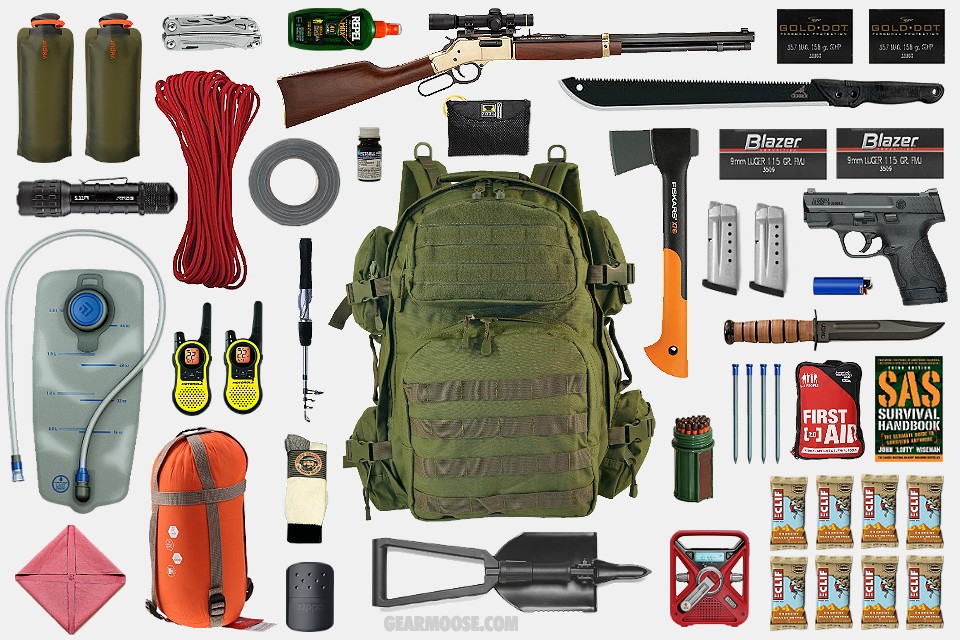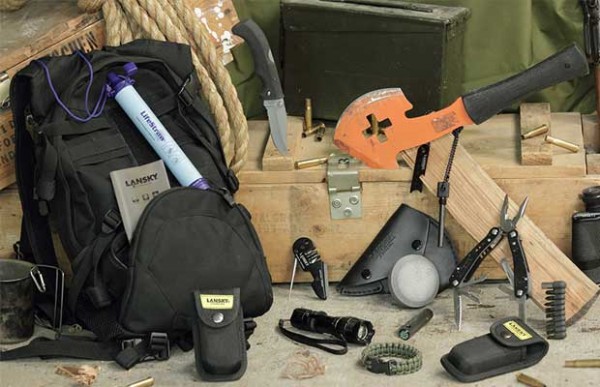
Sometimes, your chances of survival when SHTF will greatly depend on what prepping gear you have packed inside your bug-out bag (BOB). In an emergency situation, you can't afford to waste precious time looking for something you don't even have. Your BOB is only as good as your survival plan. Here are the absolute essentials you need to have in your bug out bag. (h/t to ThePrepperJournal.com)
Water and water treatment methods
When you are exposed to the elements, it is important to stay hydrated. Water should be your priority. Make sure to bring enough reusable water bottles that you can refill every chance you get. Depending on your level of physical activity, you may need around one to three quarts of water per person, per day. If you think that you might not have access to a reliable source of drinking water, you can bring along some water purification tablets or a water filter.
First aid kit
A basic first aid kit is a must in case of minor injuries, such as cuts, splinters, or burns. Your first aid kit should come equipped with gauze bandages, antiseptic wipes, small scissors, disinfectant, and burn gel. (Related: These are the items that you need in your first-aid kit if you just want to carry the bare minimum.)
Tents and sleeping bags
Unless you have the time and energy to build a makeshift shelter, you will probably need to pack a tent. It can serve as your portable shelter and provide some level of protection from pesky bugs and curious animals when you sleep at night. Sleeping bags are also a great way to stay warm during nighttime if you plan on bugging out in colder areas.
Food supplies
You won't be able to focus on whatever outdoor tasks you plan to do if you are constantly hungry. Keep your energy levels up by packing lightweight, nonperishable food items that are high in protein and fat. Avoid bringing canned goods because they will only weigh you down.
Hygiene items
Proper sanitation is important when you are outdoors. You wouldn't want SHTF to literally happen just because you weren't able to properly clean your hands before eating, would you? Some useful hygiene items to have with you include toilet paper, a small bar of soap, wet wipes, a small tube of toothpaste, and a toothbrush. If you are female, remember to bring some feminine hygiene products as well, just in case.
Clothing
Since hygiene is still important, you might not want to go through three days wearing the same set of clothes, if you can help it. Depending on how long you plan to bug out, pack enough sets of lightweight, comfortable, and weather-appropriate clothing. If you expect the weather to be wet, bring a rain jacket and synthetic camping clothes. Wool items also dry quickly. To ward off the heat of the sun, bring a wide-brimmed hat.
Small towels
Small towels dry quickly and don't take up much space. Use these towels to wipe away extra sweat and keep you dry.
Lighters or matches
You never know when you might suddenly need to start a fire to cook food or avoid hypothermia. You can even use one to boil water if you lack any water treatment methods. Lighters and matches are useful fire-starting materials that are small enough to conveniently fit in your pocket.
Self-defense items
The wilderness is full creatures that may see you as a potential threat. Protect yourself from wild animals by keeping a small firearm close at hand. As a safety measure, you can keep it secure in an "inside the waistband holster" or IWB. Pepper spray also makes a great non-lethal weapon.
Learn more tips on what to pack in your bug out bag by going to BugOut.news.
Sources include:
Please contact us for more information.



















